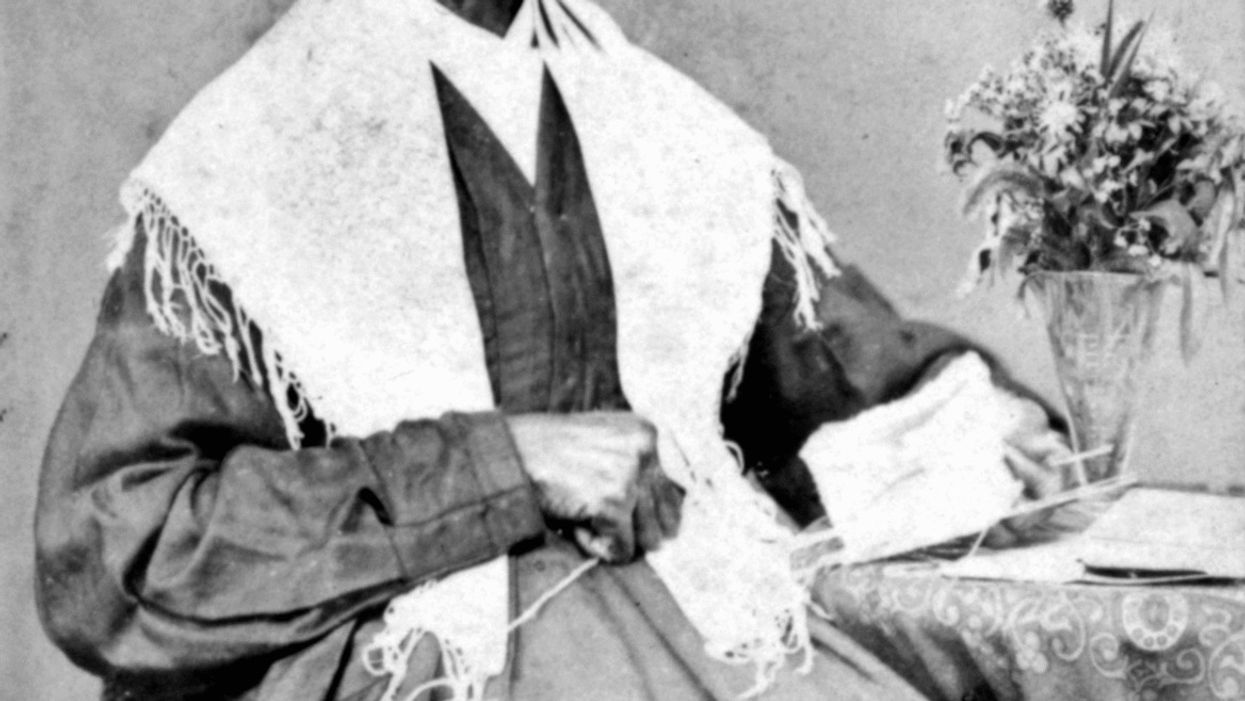Morgan is director of the Declaration for American Democracy, a coalition of 145-plus organizations from the labor, racial justice, faith, women's rights, environment, good government and many other communities.
This is the second in a series of opinion pieces we are publishing during Women's History Month to recognize the contributions of women to the democracy reform movement.
This month is a time to reflect on the incredible work women activists have done to gain full and equal participation in democracy. It's also a time to reflect on the ways our democracy still shuts people out — and how we can join reformers to push solutions forward.
Women have been driving democracy reform for centuries. The dominant narrative of the suffrage movement is familiar, beginning with the Seneca Falls convention in 1848, featuring well-known activists like Elizabeth Cady Stanton and Susan B. Anthony, and culminating with the ratification of the 19th Amendment in 1920, which gave women the right to vote. These bold reformers redefined democracy for women. Thanks to them, this Women's History Month we celebrate not only the successes of the suffrage movement but also a record number of women in Congress and the multiple women who have sought the presidency this year.
The centennial of suffrage is well worth celebrating. But we must also acknowledge the 19th Amendment granted the vote in practice only to white women. Before and during the time white women were demanding the vote, black women like Sojourner Truth and Ida B. Wells were demanding a voice for African-Americans. As hard as the fight for women's suffrage was, people of color had to fight all the harder to secure their rights to vote — and they are still fighting today.
The groundbreaking Voting Rights Act was enacted in 1965 because, despite the fact that every American technically had the right to vote, discriminatory practices — from literacy tests and poll taxes to outright violence and intimidation — were being used to prevent African-Americans from exercising their right to vote. Though we have made great strides in combating these practices, voting rights are still under attack 55 years to the month after the voting rights marches across Alabama known as Bloody Sunday.
In 2013, the Supreme Court gutted the Voting Rights Act in Shelby County v. Holder, freeing up states to once again pass laws that restrict access to the ballot. Georgia, Florida, Texas and other states have done just that.
The good news is that reformers across the country are fighting back. Women are still leading the charge, tackling modern threats to our democracy like voter suppression and big money in politics. For example, Stacey Abrams — who in 2018 narrowly lost a bid to become Georgia's first black female governor due to voter suppression — is spearheading a major initiative in her state to defend voting rights, overcome suppression of black and Latino votes, and get more people registered to vote.
Women and our allies work to push democracy reform forward because we are acutely aware that historically, our democracy has not fairly represented everyone. Further, we understand that we cannot make progress on the issues we care about most, from reproductive rights to health care to climate, without first ensuring that all voters' can actively participate free from impediments.
That is why women's issues, like all other political issues, are democracy reform issues. Until we return political power to voters — all voters, regardless of gender, race or income — we can't count on the democratic process to enact our will.
There already exists a powerful next step for democracy reform that urgently needs our attention. While celebrating Women's History Month, we also mark the one-year anniversary of House passage of HR 1 — the most comprehensive package of democracy reforms in a generation. The bill, titled the For The People Act, would reduce the influence of big money and corporate lobbyists in politics, protect and expand the right to vote, and restore ethics and accountability to government.
Another bill passed by the House last year, the Voting Rights Advancement Act, would restore the Voting Rights Act and stop state-sponsored efforts to discriminate against minorities at the polls. Both of these crucial bills are stalled in the Senate, where Majority Leader Mitch McConnell refuses to bring them to a vote.
It is long past time for the Senate to take action on these two bills. As we recognize the important contributions of women, we can honor the mission that women democracy reformers embarked on over a century ago: to make good on the promise of democracy by guaranteeing an equal voice for all Americans.



















Marco Rubio is the only adult left in the room